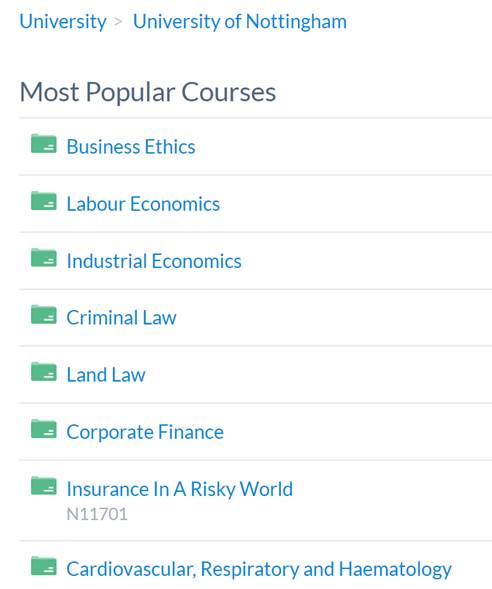In previous sections we have highlighted the availability to students of individuals who may be recruited for writing, tutoring or editing: services that risk violating institutional prescriptions regarding academic integrity around assessment. Those recruited individuals are not usually known to the student prior to the opening of a contract: they are strangers. However, there are others who may sometimes not be so anonymous, and whose services are not part of a ‘contract’ – they would be individuals driven by empathic support for the student, or those simply pursuing the selfless reciprocities of a supportive community. This section considers some of these help-giving agents and how they relate to institutional regulations on academic integrity.
Family and friends
It has already been noted here that parents can mediate the recruitment of academic tutors. In fact, recent surveys claim that in the UK over £6bn a year may be spent in this way by parents. Certainly, much of this may be invested in progressing students through secondary rather than higher education. In relation to university, some educational professionals express worry at the oppressive influence exerted on undergraduates by ‘helicopter parents’. There are recent reports that this form of parenting can extend to the purchasing of essays in order to support the university progress of student offspring. Respondents on the anonymous and private text space created for our own project reported that:
Many [subject] students at [my university] have parents who are [subject] practitioners. Some of these students have openly boasted that their parents have written their answer for summative work. This is hugely unfair on the students that work independently to reach answers themselves.
A friend has a knowledgeable parent in the subject, so literally gets them to complete their courseworks for them, therefore achieving abnormally high marks in one module compared to others. It isn’t fair on hardworking students who spend hours researching the subject themselves.

This recurring sense of felt unfairness is also manifest in comments that were made about help that was sought by peers:
Many of my friends have asked to see my drafts (I get good marks) or my reading notes, which i feel is unfair.
Another student that is a friend of mine started 2 days before the deadline and i am close enough with the student and so i told them the structure i used and they did exactly what i did and the English wasn’t far superior and somehow ended up with 10 points more than me. That made me feel even more like my work simply was worthless and of no importance.
90% of people taking [Language] in the final year (I am an exception) have sent coursework to friends they made in [Country] … As such I do not believe that any coursework assignment has been a true reflection of anyone’s abilities given that in lessons some people are still struggling to string a sentence together.
I know many people, some close friends, who have emailed students from the year above and got them to send their marked coursework (which is the same as the coursework we have been set) so they can copy ideas. I find this really unfair because I have always worked hard and submitted my own work but people who are copying from previous years are getting the same grades as me, despite the fact that I have to take a lot longer to work out my coursework from scratch.
Seeking help from peers that is understood to be inappropriate is more likely to happen with close friends and among those with a relaxed attitude to academic integrity (Awdry and Ives, 2020) It would be misleading to suggest that helping peers was always experienced negatively, or that requests for help were typically regarded as a source of unfair treatment by friends. Indeed we have argued (Crook and Nixon, 2019) that university regulations on collusion fail to consider the significance of students living in a community where social reciprocity is natural and where other institutional advice about good study practice encourages learning from peers. This may make it difficult for students to recognise where boundaries exist between collaboration and collusion. Again, these uncertainties surface within our corpus of anonymous student reflections:
I will sometimes ask for feedback on my work from friends or family however I do not deem this to be academic misconduct.
I try not to cheat in any examination or coursework but I do sometimes ask friends how my work should be structured and we share ideas about that. I’m not sure if that’s wrong or not.
I have had loads of help off tutors and always get a family member to proof read my work which helps. My friends are as last minute as me with the course so we all give ideas and discuss and share material, which is helpful.
In short, university regulations on plagiarism will never be read in a social vacuum. If concerns exist regarding inappropriate (and ‘un-contracted’) help from others, then regulations need to square with students’ lived experience: in particular, what might be long histories of affectionate and mutual support. Yet the discussion above illustrates the difficulties that institutions face in managing regulation of integrity. In terms of the student experience, help-seeking among peers can be judged as a source of unfairness needing to be regulated but, at the same time, also a benign and natural practice that should be protected from regulation.
Online social reference
The familiar phenomenon that is “Web 2.0” is sometimes termed “the participatory web”. This phrase suggests the possibility of the internet being a home for interacting communities: something that has been celebrated in a number of successful commentaries (The Wisdom of Crowds, The Tipping Point, Here comes everybody etc.). The growing dynamic of information exchange relevant to social plagiarism has recently been reviewed by Lancaster (2019).
An early design for stimulating such participatory action was the ‘social Q&A site’. That is, sites where internet users could post questions, while hoping to receive answers from other users. The popular examples (e.g., Yahoo! Answers, WikiAnswers, Answerbag and Reddit) are likely to be limited resources for the undergraduate facing a troublesome assignment. However, the general idea of internet as Q&A station has been adopted by students in a practice that information scientists label “social reference” – a resonance with ‘library reference’. Although what is entailed in this practice is something that goes beyond simple Q&A to involve more complex forms of online collaboration and exchange. Course materials of all kinds may be downloaded from sites such as thinkswap and coursehero.

Shachaf (2010) has reviewed and theorised for the librarian community this growing feature of online networks, highlighting how it brings the now familiar phenomena of ‘crowdsourcing’ to student research. While such practices have generally involved the student user anxiously surfing internet sites, a recent Chinese initiative brings the resources of crowdsourcing homework to a phone app. Against the background of such developments, social media has evidently become a source of tension among educational innovators. Some of them regret that it is not mobilised by students in more imaginative ways to support collaboration (Hrastinski and Aghaee, 2011). While others report troublesome outcomes when lecturers actively recruit it into pedagogy. For instance, Stöckelová and Virtova (2015) describe the fate of a participatory website in a Czech university “the purpose of which is to enable students to share study materials, essays and evaluations of staff and courses”. While this brought about some positive outcomes for the learning community, a free traffic of documents also created the conditions for a too-easy slide into plagiarising practices.
This last example has a local flavour: the initiative encouraged a re-purposing of material within the boundaries of that particular institutional community. Despite those negative outcomes, there is something heartening about the open posting of student work – particularly if orchestrated by students themselves, as an approach to celebrating their labour. In other worthy initiatives it has been lecturers that have organised such posting, by making it a requirement of the assessment process (Waycott et al 2013). Such initiatives were recognised by lecturing peers as innovative, but concerns about plagiarism were widely expressed and would be likely to act as a brake on such novel practices developing.
Assignments off-the-social-shelf
On the other hand, collections of ready-made student material already exist on the internet outside of such local initiatives. Although the open posting of assignment material may be judged only loosely ‘social’, such collections are a further source of material that violate expectations of legitimate authorship.

Sites such as ExampleEssays and EssayDepot ceollectstudent material (mainly essays) and, for a fee, allow users to search with suitable keywords. A similar service exists for ‘study resources’, which might include previous examination papers and submitted student course notes. These may be organised by university, so that students can locate resources relating to very specific needs. Part of a list of resources for modules from one university are shown below:

Under this arrangement of data, subscribers can open the indicated folders and download examination questions, coursework tasks and student notes for the indicated modules. Evidently, simply re-submission of assignments harvested in this way does risk being caught by standard plagiarism checkers such as Turnitin. The work may have been downloaded and submitted by another student and, thereby, is in the Turnitin database. Institutions need to consider whether the use of ‘model answers’ is a practice it wishes to rule on. In our own survey of assessment obstacles, it was not uncommon for respondents to comment on the need for such examples:
Understanding the task, as the module convenors usually do not provide adequate, in depth description or show us any examples of what we are meant to do.
The guideline of coursework can sometimes be confusing, especially on the format of the work. It is suggested that sometimes, examples can be given for students for reference. Students thus could have a general picture on how to structure the essay.
A difficultly was the lack of examples of structure etc, and model essays which would be really handy.
It is possible for student assignments to find their way onto these open sites without the author realising. For instance, some student will use plagiarism checkers before submitting their work. Some of these may lead to the checked assignment being passed to essay mills for their example collection. This is evident in the terms and conditions of the plagiarism checker Viper:
When you scan a document, you agree that 9 months after completion of your scan, we will automatically upload your essay to our student essays database which will appear on one of our network of websites so that other students may use it to help them write their own essays.
There is an uncomfortable irony that one person’s attempt to avoid plagiarism could be the basis of another’s effort to achieve it.
